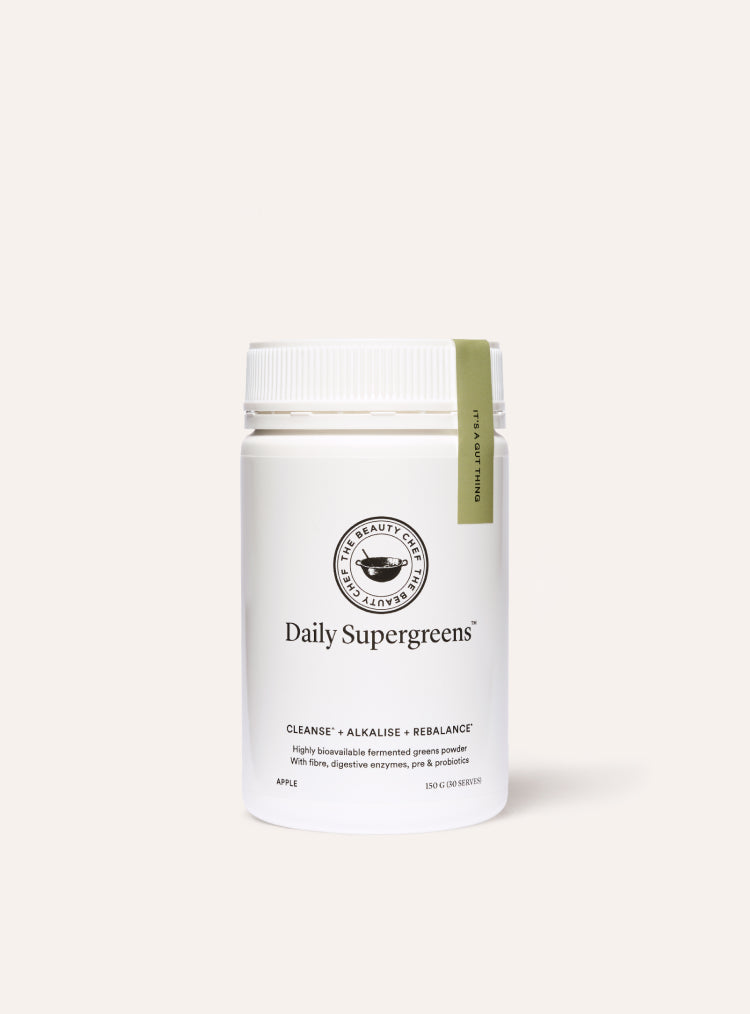
By Carla Oates
The silly season might be over, but that doesn’t mean our digestive system got the memo. If you’re experiencing constipation or a change in bowel habits, that’s perfectly normal after an indulgent period. Here, we explain what’s going on in your body—plus, how to get things moving again.
Why constipation & bloating are common at Christmas time
If you’re prone to constipation, you might find it harder to stay regular during the festive season. (Ever heard of the phrase ‘jingle bowels’?)
“This happens due to changes in your diet and routine,” explains The Beauty Chef’s resident Customer Service Advisor & Naturopath Jessie Hoeschle. “Around Christmas time, we often reach for foods we wouldn’t usually eat, consume larger portions than usual, drink more alcohol and eat at irregular times—all of which can put stress on the digestive system.”
How to hit the ‘reset’ button during January
The Beauty Chef’s 14 Day Cleanse & Reset is a great way to hit reset on your digestive system and nourish your gut at any time of the year—but especially during January. Taking part in this gentle cleanse can lead to better digestion and increased regularity, as well as other welcomed symptoms such as more energy and clearer skin.
However, just as our bowels can struggle to adjust to the festive season, your body might need a moment to adjust to the cleanse, too. Jessie adds: “It is normal to experience a shift in stools and digestion when first commencing a cleanse. Stinky stools, loose stools and dark-coloured stools are common due to the changes occurring within your digestive system.”
5 ways to get things moving again
Want to get your digestion back on track? Here are five things you can do today.
- Exercise can help. Pull on your walking shoes and pound the pavement.
- Increase your fibre intake. DAILY SUPERGREENS is a fiber-rich greens powder, containing nutrients that support liver function and digestion, as well as prebiotics and probiotics which help to maintain a healthy gut.
- Drink more water. Aim for at least 2 litres per day.
- Stay away from any trigger foods. Are there any foods that spark digestive discomfort?
- Consume easy to digest foods. Think: soup, slow-cooked meals and smoothies.





